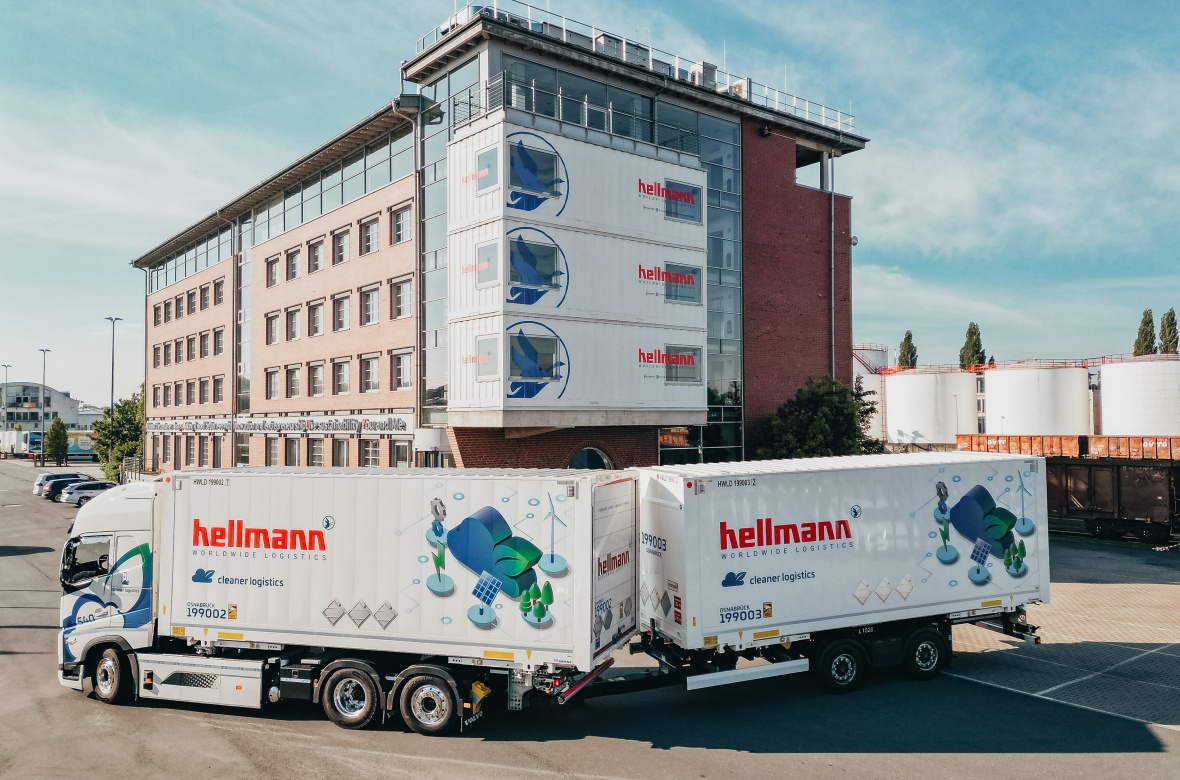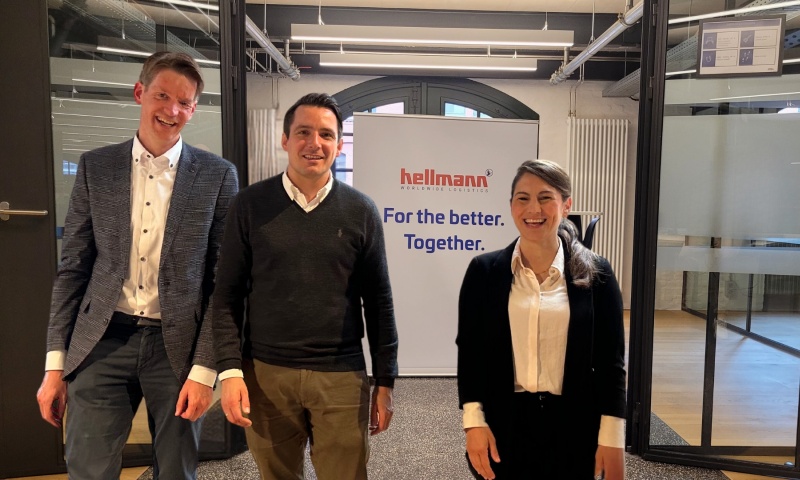Hellmann decarbonizes truck fleet in heavy goods transport
Hellmann Worldwide Logistics is relying on a mix of alternative drive systems to significantly reduce the CO2 footprint of its heavy goods transport. As part of the initiative, the logistics company is putting two new fully electric 40-ton Volvo swap body trucks into operation, including a state-of-the-art charging infrastructure, and is expanding its e-truck fleet by adding four more distribution vehicles (16-ton trucks) by this summer. In addition, since the beginning of this year, Hellmann has been using only bio-LNG to fuel its growing LNG fleet, taking an important strategic step towards decarbonizing its truck fleet and significantly reducing CO2 emissions from road transport.
The two all-electric 40-ton trucks will be used on the difficult-to-decarbonize middle mile – initially primarily on routes between the two German cities of Osnabrueck and Bremen, covering between 550 and 700 kilometers a day. To enable the 40-tonne trucks to operate in two shifts, the company is also building its own 300 kW charging infrastructure, including buffer storage. Beginning this summer, the e-fleet will be expanded to include four all-electric 16-ton trucks to provide increasingly emission-free deliveries in urban areas.
In addition to electrifying its fleet, Hellmann is also relying on bio-LNG as a climate-neutral alternative to conventional diesel trucks on long-haul routes. The company sources its bio-LNG, which is made exclusively from organic residues such as liquid manure and dung, from regional production, for example from contractual partners such as Q1, thus making a significant contribution to reducing greenhouse gas emissions. The aim is to run more than a third of all Hellmann trucks on alternative fuels by the middle of the year.
"With the purchase of the two electric 40-ton trucks and the corresponding charging infrastructure, we are taking the next logical step in driving the development towards a significant reduction in CO2 emissions in road freight. This is not about short-term profitability. Rather, as a driver of innovation, we want to support the further development of technologies and make them competitive," said Jens Wollesen, Chief Operating Officer, Hellmann Worldwide Logistics.
"We want to live up to our responsibility – towards our customers, the environment and our drivers. Thanks to low noise levels and zero exhaust emissions, the future belongs to electromobility and sustainable fuels. That's why we're aiming to gain operational experience in the field of electric mobility, enabling us to convert our fleet as quickly as possible," added Jonathan Adeoye, Chief Operating Officer Road Germany & West Europe, Hellmann Worldwide Logistics.




